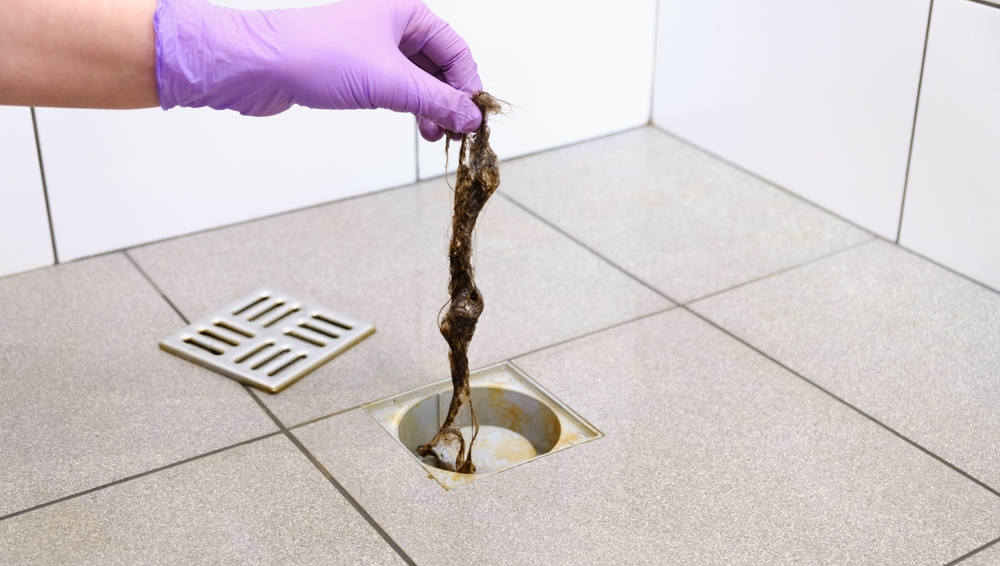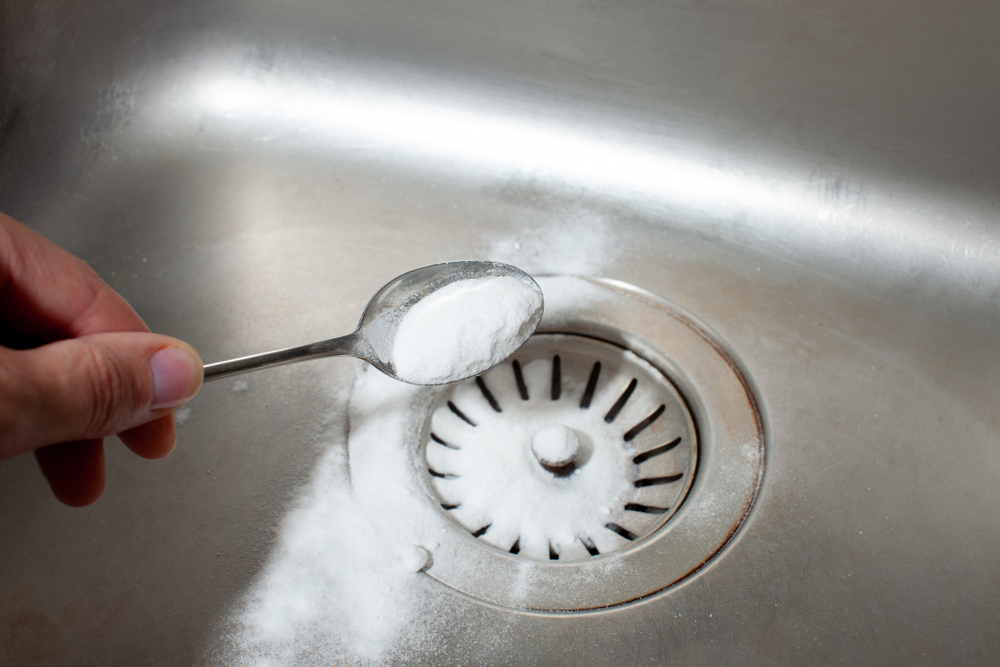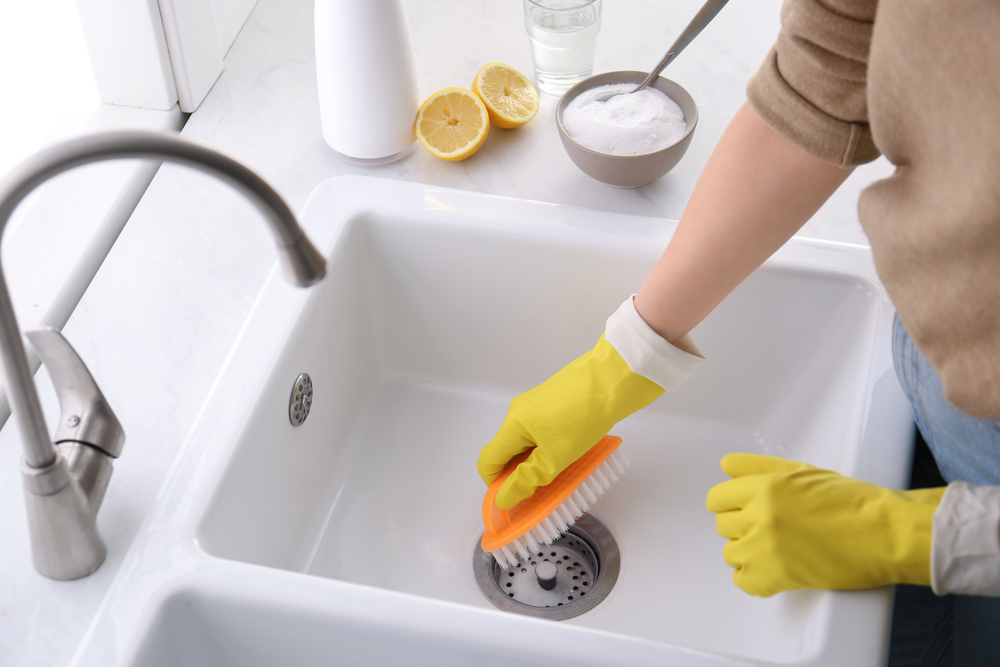Any home depends on a clean and effectively working plumbing system. Drains can eventually become blocked with different materials, which causes either delayed drainage or even total blockages. Often employed in order to address these problems are drain cleaners. These compounds clear or dissolve obstacles, therefore restoring appropriate pipe flow. We will explore the different types of drain cleaners now on offer in this post, weighing their advantages, disadvantages, and potency. We will also go over some basic safety tips to keep in mind while utilizing these goods.
Types of Drain Cleaners
There are various types of drain cleaners, each meant to solve particular kinds of obstructions in particular ways. Let’s examine the four primary varieties: chemical, mechanical, DIY, and enzyme drain cleaners.
1. Chemical Drain Cleaners
Possibly the most often utilized kind are chemical drain cleaners. They break down clogs and eliminate pipe obstructions by means of strong chemicals. These cleansers mostly call for sulfuric acid, sodium hydroxide (lye), and hydrochloric acid.
- Sulfuric Acid: Strong and quite efficient in breaking down organic products like grease and hair is sulfuric acid. But it’s also quite caustic and, if improperly applied, may ruin pipes.
- Sodium Hydroxide: Considered lye, sodium hydroxide is a caustic agent that breaks down blockages by reacting with proteins and lipids. It is efficient, but it can also compromise skin and plumbing.
- Hydrochloric Acid: Some drain cleaners employ this strong acid, hydrochloric acid, to dissolve difficult obstructions. Though used improperly, it can be dangerous even if it is quite effective.

2. Enzyme Drain Cleaners
Clearing obstructions can be done more environmentally friendly with enzyme drain cleaners. These cleaners break down organic products including food particles, grease, and hair by use of natural enzymes and bacteria.
- How They Work: Enzymes are proteins meant to hasten chemical reactions. Specific microorganisms create enzymes in enzyme drain cleaners that break down organic material into smaller, doable bits.
- Benefits: Generally speaking, enzyme cleaners are less detrimental to pipes and the surroundings than chemical cleaners. They also function gradually, hence consistent usage of them reduces their likelihood of causing damage.
3. Mechanical Drain Cleaners
Mechanical drain cleaners clear obstructions by physical means. These cover instruments including plungers, augers, and drain snakes.
- Drain Snakes: These flexible gadgets may reach far into pipes to dislodge and clear obstructions. They work well for obstructions found farther down the drain.
- Augers: Like drain snakes, augers have a revolving head that aids in the breaking up and dragging out of obstructions. For more severe blockages especially, they are quite helpful.
- Plungers: Common tools are plungers, which create a vacuum forcing water and air to dislocate obstructions. For little obstructions, they work well.
4. Homemade Drain Cleaners
Common domestic products are used in homemade drain cleaners to unclog obstructions. These could be a reasonably priced and natural solution.
- Baking Soda and Vinegar: Combining vinegar with baking soda produces a bubbly response that can assist in clog breakdown. Many times, minor obstructions are cleared with this combination.
- Hot Water: Pouring hot water down the drain will assist to break down soap scum and grease. For everyday maintenance, it’s a straightforward fix.
- Salt and Baking Soda: Combining salt and baking soda will assist clear drains by scraping away accumulation flushed with hot water.

Comparison of Different Types
Choose a drain cleaner near me based on numerous criteria including cost, environmental impact, simplicity of use, and effectiveness.
- Effectiveness: Though they might be tough on pipes, chemical drain cleaners often act fast. Though they are milder, enzyme cleaners function more slowly. Although mechanical cleaners are quite efficient, they may call more work and expertise. Though less strong, homemade cleaners can solve small problems.
- Cost: Generally reasonably priced, chemical and enzyme cleaners differ depending on brand and formulation. Although they cost more initially, mechanical instruments like snakes and augers can be repeatedly used. Cost-effective solutions are homemade ones.
- Ease of Use: Chemical cleaners are easy to use but should be used carefully since they are somewhat harsh. Simple and safe for frequent use are enzyme cleansers. Made-from- scratch solutions are easy to prepare; mechanical cleansers could call for some experience.
- Environmental Impact: Enzyme cleaners are the most ecologically friendly, then DIY solutions. Inappropriate usage of chemical cleaners might damage the surroundings.
Benefits and Drawbacks
Chemical Drain Cleaners:
- Benefits: fast and efficient in breaking through difficult obstructions Ideal for extreme obstructions.
- Drawbacks: Might harm pipes and the surroundings. Toxin makes careful handling necessary.
Enzyme Drain Cleaners:
- Benefits: environmentally friendly and less harmful to pipes Good for routine upkeep.
- Drawbacks: Slower action than with chemical cleaners is a drawback. For hard obstructions, may call for several treatments.
Mechanical Drain Cleaners:
- Benefits: straightly eliminates blockages without chemicals. Can properly manage extreme obstructions.
- Drawbacks: calls both knowledge and physical effort. Perhaps inappropriate for every kind of clog.
Homemade Drain Cleaners:
- Benefits: Natural and reasonably priced are the advantages. Safe for daily usage and ecologically benign.
- Drawbacks: less suited for severe clogs. For optimal effects, may need several tries.

Safety Precautions While Using Drain Cleaners
Using any kind of drain cleaning calls first safety. These steps can help you to prevent mishaps and injuries:
- Wear Protective Gear: Wear gloves and eye protection always when using chemical cleansers. This lessens skin and eye irritation.
- Ventilate the Area: Use chemical cleaners with proper ventilation to prevent breathing fumes. Move air with fans or open windows.
- Follow Instructions: Read and closely follow the product directions. This covers advised approaches of application and safety precautions.
- Avoid Mixing Products: Never combine many kinds of drain cleaners, especially chemical ones. Combining items can set forth harmful effects.
- Keep Out of Reach: Store drain cleaners securely out of reach of children and dogs. This stops inadvertent touch or intake.
Conclusion
The type and degree of the obstruction will determine the suitable drain cleaner to use. Benefits and disadvantages abound in chemical, enzyme, mechanical, DIY, and mechanical drain cleaners. Though they can be unpleasant, chemical cleaners produce speedy effects. While mechanical equipment are good for extreme clogs, enzyme cleaners are mild and environmentally friendly. Natural and reasonably priced treatments abound from homemade remedies.
Use drain cleaners always with safety first in mind; closely observe package directions. See a professional plumber for ongoing or severe clogs to make sure you know what to do. Knowing the several kinds of drain cleaners and their uses helps you to keep a plumbing system in good working order and handle obstructions successfully.
Plumbing Services CA
https://maps.app.goo.gl/31Yt4rhDrainzNJ4A
(279) 203-0765
https://plumbingservicesca.com/
